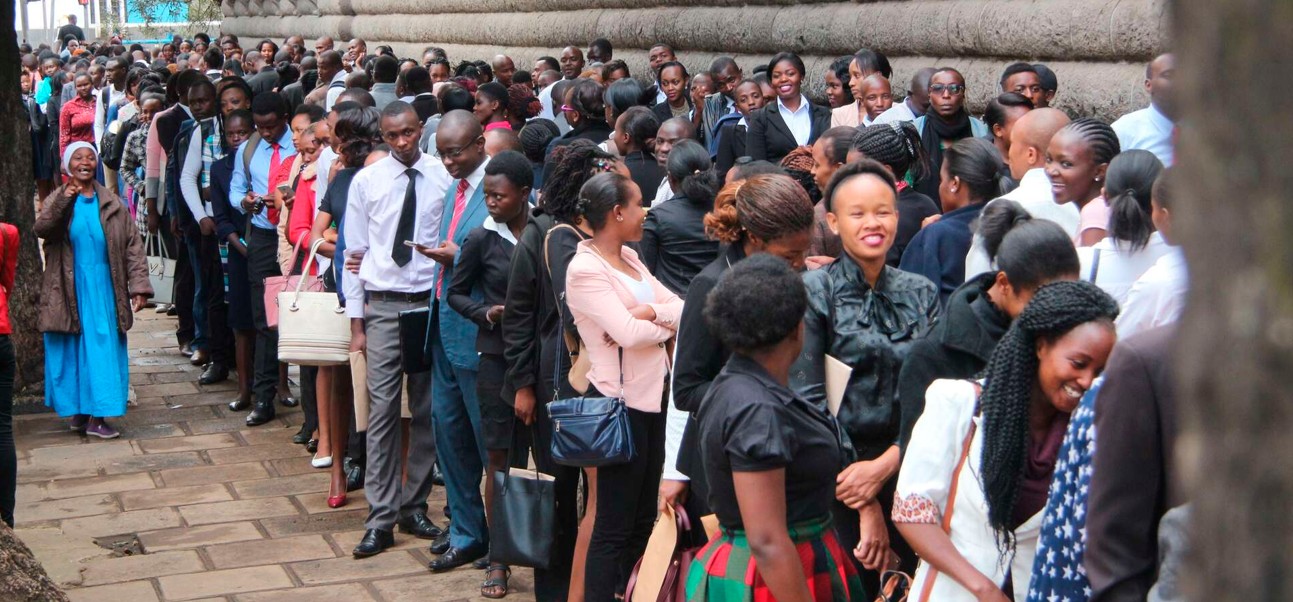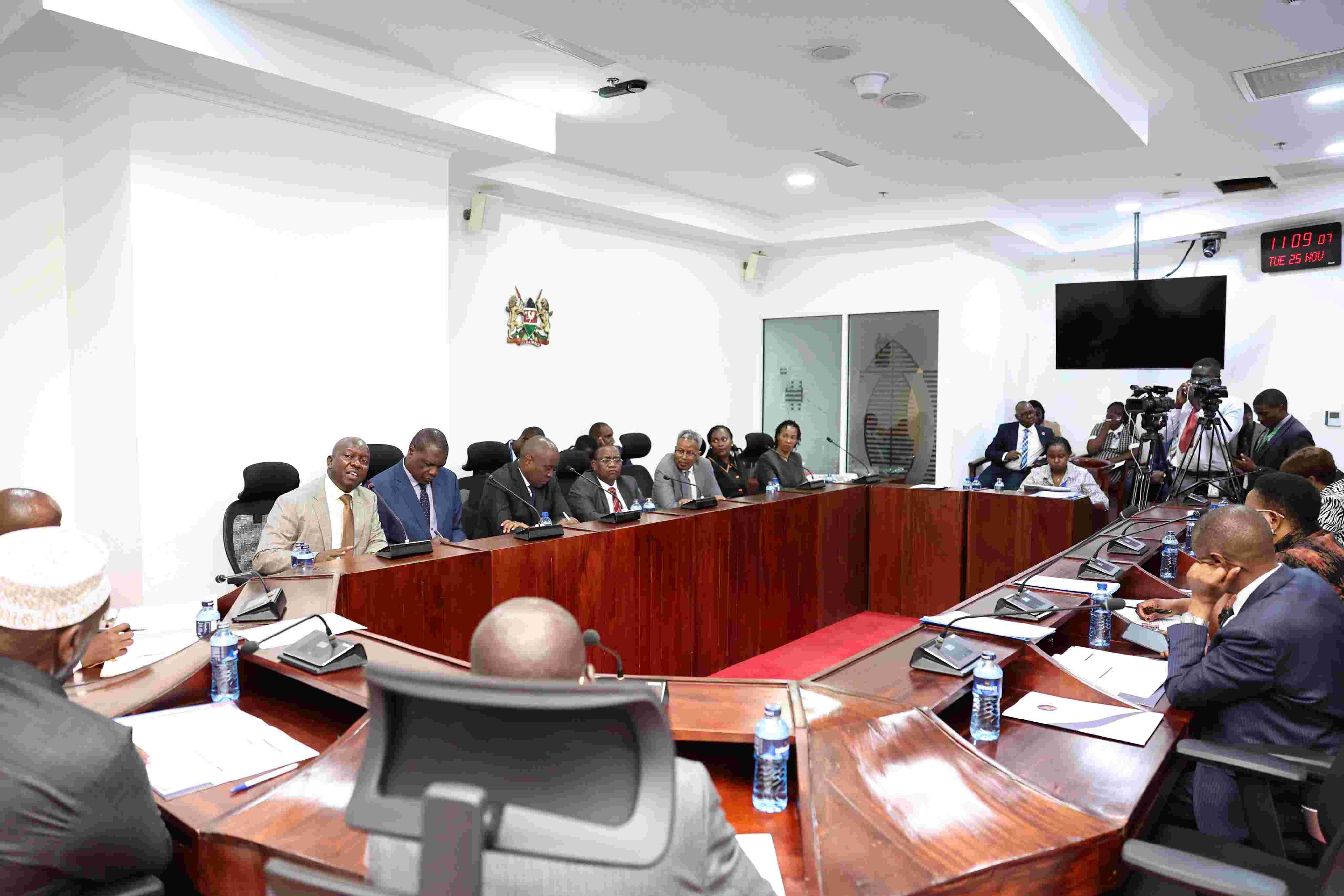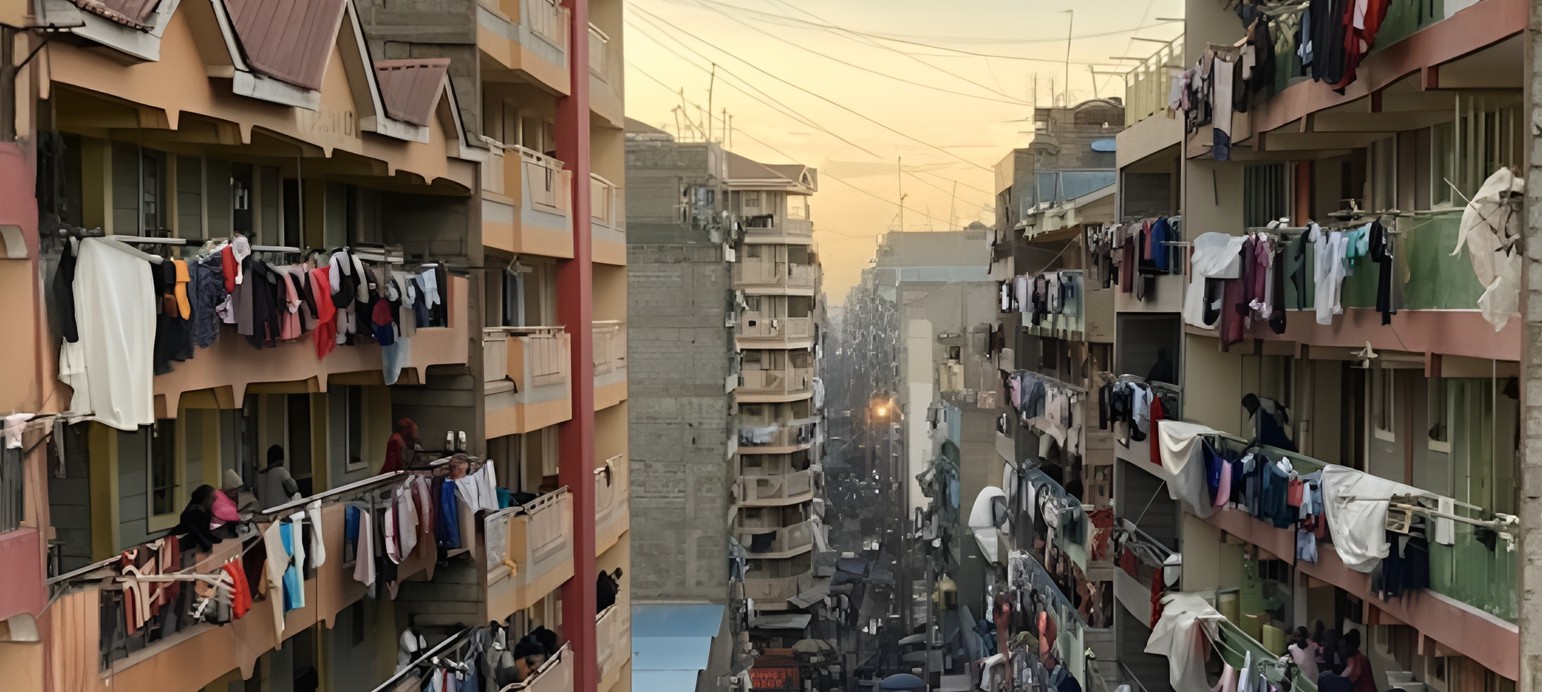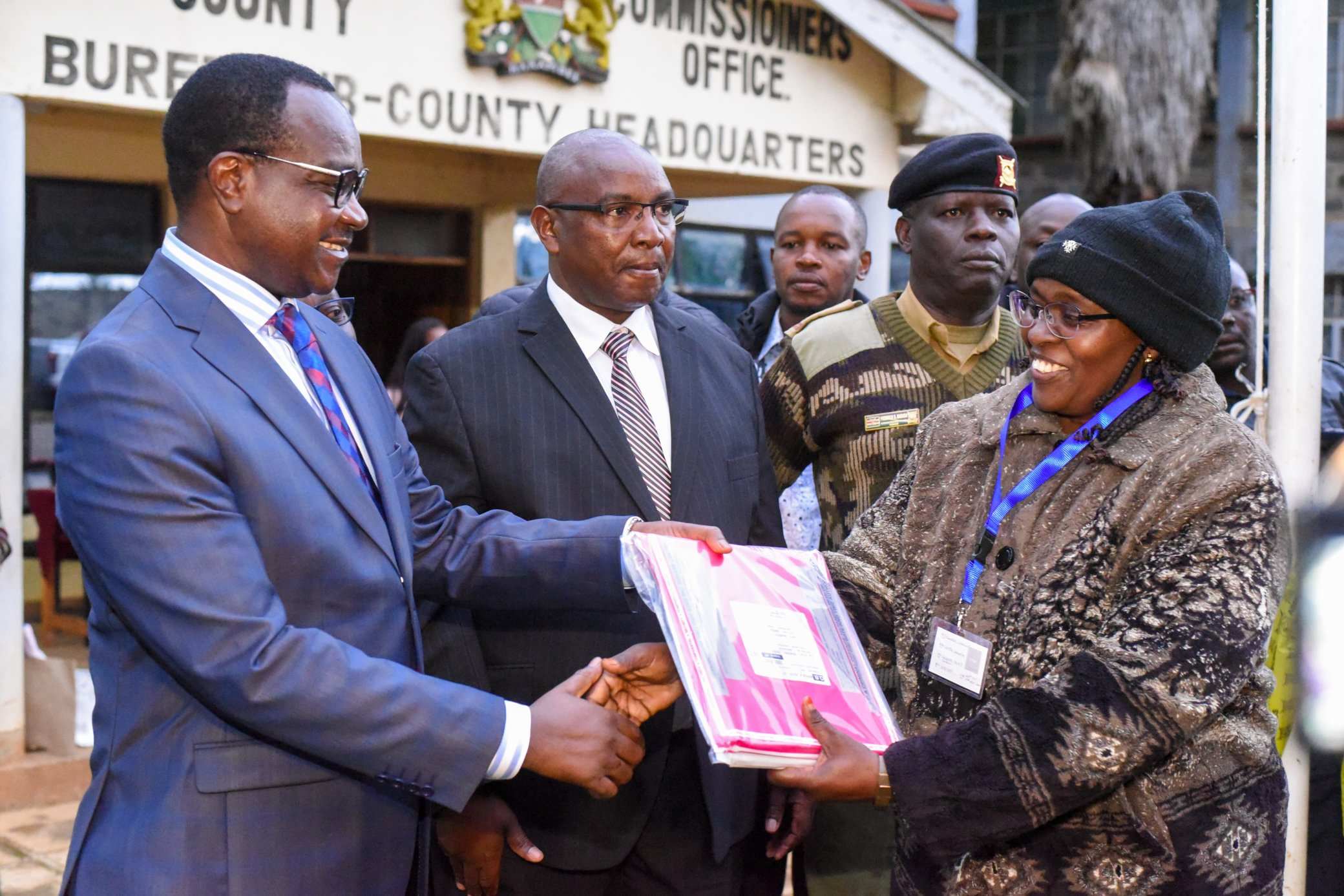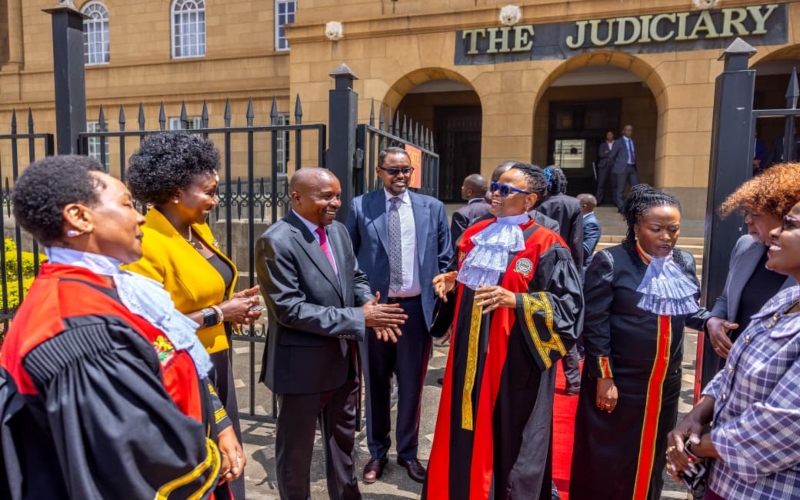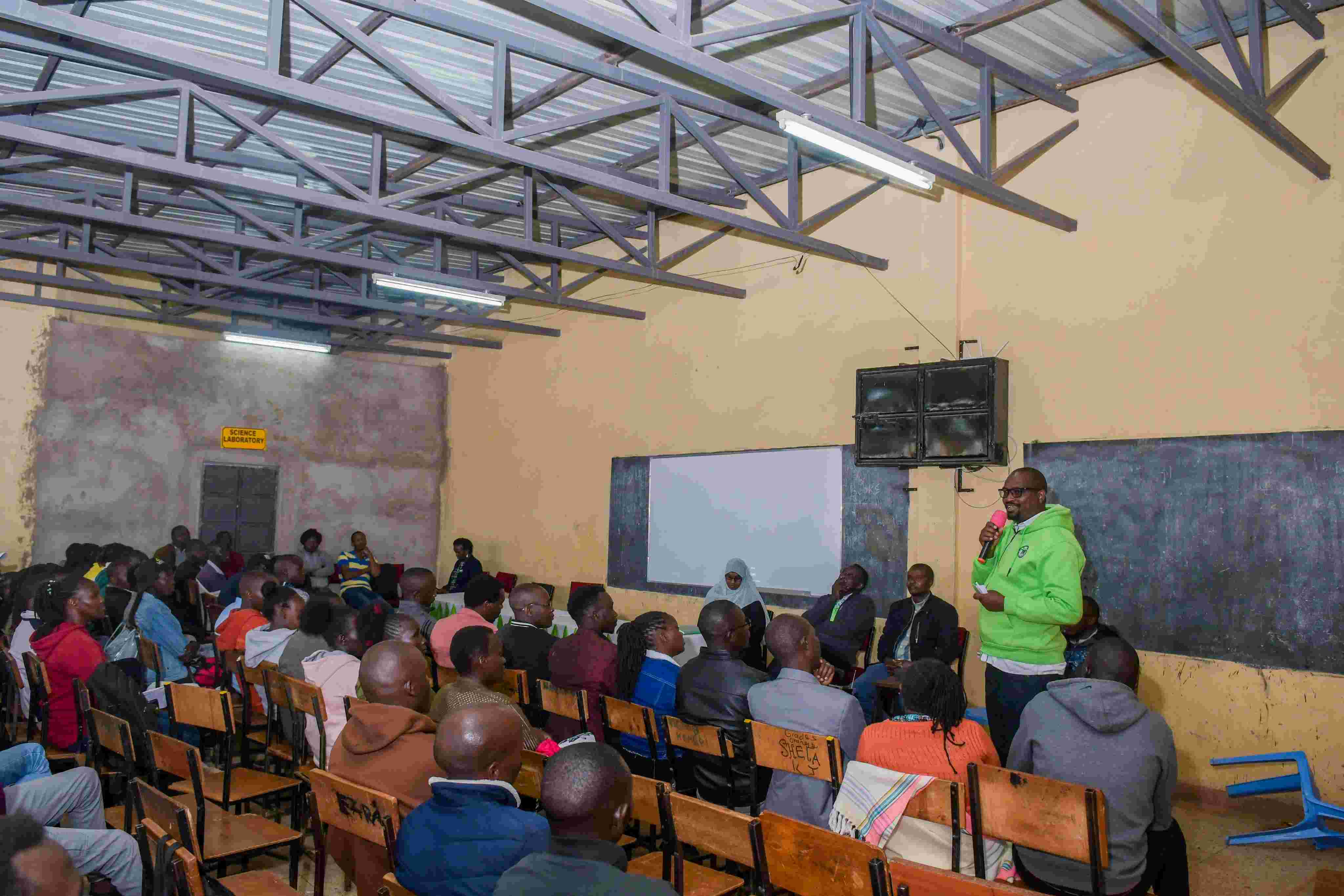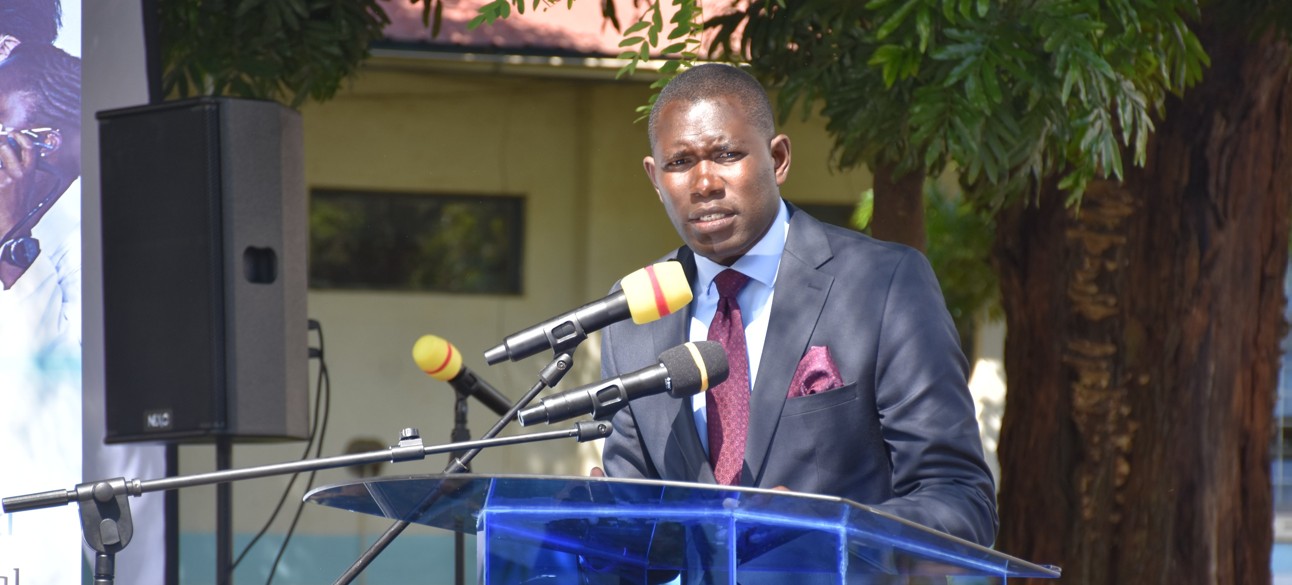Ruto says Coast governors have agreed to talks after banning muguka

The President says he has engaged governors Abdullswamad Sherrif Nassir (Mombasa), Gideon Mung'aro (Kilifi) and Andrew Mwadime (Taita Taveta) and that they have agreed to a meeting.
The governors of Mombasa, Kilifi, and Taita Taveta counties have agreed to attend a stakeholders meeting addressing concerns about the sale and use of muguka, a commodity they banned but may have to reconsider following a presidential directive.
At a State House meeting with Embu County leaders on Monday, President William Ruto nullified the ban, citing existing laws on the stimulant, and directed the Agriculture ministry to convene a consultative meeting of key stakeholders to discuss their concerns.
More To Read
- Kilifi North MP Owen Baya withdraws controversial Muguka Bill after DP Kindiki meeting
- Muguka farmers face uncertain future as new Bill seeks delisting
- How Muslim clerics are helping members stay away from drug abuse
- Ruto's pledge as meeting with Coast leaders over muguka ban finally takes place
- Education stakeholders back Mombasa's muguka ban
- Coast leaders ready for Monday meeting with Ruto on muguka ban
He also announced that the government had set aside Sh500 million to scale up farming, aggregation, and value addition to scheduled crops such as muguka and miraa in the 2024–2025 financial year.
On Tuesday, the president announced via X, the social media platform, that he had engaged governors Abdullswamad Sherrif Nassir (Mombasa), Gideon Mung'aro (Kilifi), and Andrew Mwadime (Taita Taveta) and that they had agreed to the meeting "to be convened by the Ministry of Agriculture and Livestock this week as was agreed with the leadership of Embu County."
"We agreed subsequently to convene a meeting of political leaders of the affected counties next week," he wrote.
I have engaged the governors of Mombasa, Kilifi and Taita-Taveta counties on their concerns and challenges in the sale of muguka.
— William Samoei Ruto, PhD (@WilliamsRuto) May 28, 2024
Governors @A_S_Nassir (Mombasa), @GideonMungaroM (Kilifi) and @GovernorMwadime (Taita-Taveta) have agreed to participate in a meeting of all… pic.twitter.com/JdLr1QRBNt
County actions
Mombasa was the first to announce the ban on the sale and distribution of muguka in an executive order dated May 22.
Abdullswamad said in the order that no vehicles carrying the products will be allowed entry into the county. He also noted that muguka traders have ignored laws to protect children from drugs, with some going as far as selling to them.
Where substance abuse is concerned, the National Authority for the Campaign against Drug Abuse (NACADA) released a survey in May 2023 that listed miraa (also known as khat) and its variant, muguka, among the top drugs of abuse in Kenya.
In an interview on Radio Jambo earlier on Tuesday, the Mombasa County chief was adamant that the ban would remain.
In the case of Kilifi County, Mung'aro announced a muguka ban two days after Mombasa, in Executive Order No. 1 of 2024. He prohibited the entry, transportation, distribution, sale, and use of the commodity within Kilifi and ordered all enforcement officers to ensure full enforcement of the directive.
Mung'aro, who was interviewed on Radio Jambo alongside Abdullswamad, noted that he toured the grassroots, speaking and listening to residents, whom he said told him one of their biggest concerns surrounded muguka.
“They said it affects them. Our research shows muguka has become worse, maybe because of its price. People steal their mother's clothes to sell and buy muguka. The president is addressing alcohol issues upcountry. Kilifi faces the same issues with muguka. I was in a public meeting in Kaloleni where many residents said they did not want it."
Mwadime effected the ban in Taita Taveta on May 26, and afterwards, Embu County, led by Governor Cecily Mbarire, threatened court action, citing the impact of the three counties' actions on its economy.
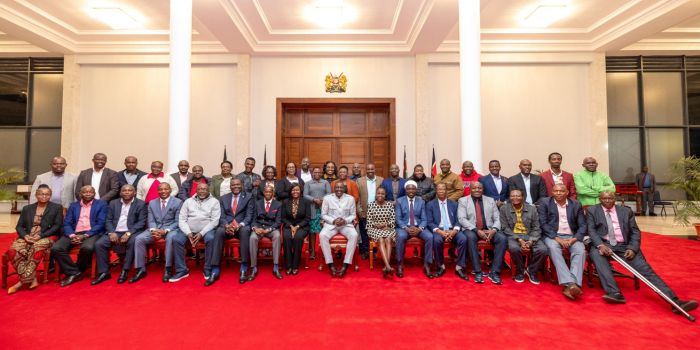 President William Ruto is pictured with Emu County leaders at the State House in Nairobi on may 27, 2024, during a meeting on the muguka ban by several counties. (Photo: PCS)
President William Ruto is pictured with Emu County leaders at the State House in Nairobi on may 27, 2024, during a meeting on the muguka ban by several counties. (Photo: PCS)
What followed was the meeting of the president and Embu leaders and the declaration of the bans as null and void, based on the classification of muguka as a scheduled crop in the Crops Act of 2013 and the Miraa Regulations of 2023. The two were passed by the Senate and the National Assembly and had the support of the Council of Governors (CoG).
On Tuesday, however, the High Court in Embu suspended the executive orders banning muguka until a case on the same was heard and determined.
Justice Lucy Njuguna certified the petition by the Embu County Assembly and Kutherema Muguka Sacco Society as urgent and said her order would remain until July 8, 2024, when the matter would be mentioned.
Kwale County, which had been urged to implement the ban, said earlier on Tuesday that it would not.
 Businesswoman Fawzia Hamad sells muguka along Third Street in Eastleigh, Nairobi, in this file picture. (Photo: Abdirahman Khalif/EV)
Businesswoman Fawzia Hamad sells muguka along Third Street in Eastleigh, Nairobi, in this file picture. (Photo: Abdirahman Khalif/EV)
Religious leaders protest
Meanwhile, religious leaders in the coastal region have united to protest the sale and consumption of muguka, which they say is destroying the social status and health of their communities.
Thomas Kakala, a prominent religious figure in Kilifi, highlighted the detrimental effects of the stimulant on the younger generation.
“We have seen primary school-going children purchasing muguka for as little as Sh20,” he said during the protest on Tuesday. “When we spoke to the users, they told us it shuts down their body systems. This is their own admission, not ours. Since Governor Mung'aro's ban, we have seen jubilation among those who understand its harm.”
Community concerns extend beyond the immediate health impacts, with some of them linking muguka use to a rise in broken marriages and other family disruptions.
"Just as the Deputy President [Rigathi Gachagua] is fighting alcohol abuse, here in Kilifi we are saying we do not want muguka. Even if you threaten to take us to court, we will stand firm in our opposition."
Another vocal religious leader, James Chigodi, echoed these sentiments, urging sellers to stop selling the commodity.
"If you think it's harmless, sell it among yourselves," he said. "We do not want muguka because it has ruined our children. Hospital reports from Port Reitz indicate increased cases related to its use. Even those who went through rehabilitation and recovered attribute their problems to muguka."
Another leader, Famau Ali Famau, called for a shift in agricultural practices, suggesting alternative crops.
"We urge our fellow community members to replace muguka and miraa with tea or coffee. We are ready to purchase coffee and tea but have rejected Muguka. We stand with our government and support our law enforcement."
Badi Yeke emphasised the broader implications for regional development, saying, "Our governors will not have a productive workforce if the youth are muguka users and patients."
"For our governors to perform their duties well, they need a healthy and mentally sound populace. We all support our governors' stance," Badi added.
Top Stories Today


